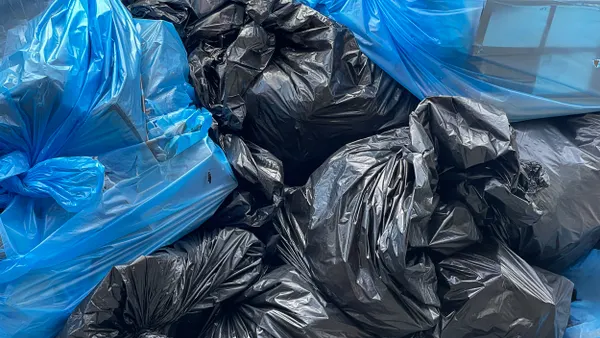Dive Brief:
- The U.S. Department of Energy (DOE) has announced plans for a new Reducing Embodied-energy and Decreasing Emissions (REMADE) Institute in Rochester, NY. This is part of the agency's Manufacturing USA initiative and will be led by the Sustainable Manufacturing Innovation Alliance.
- The REMADE Institute's mission will be to reduce the cost of technologies required to reuse, recycle and remanufacture metals, fibers, polymers and electronic waste. Through these efforts the goal is to see a 50% improvement in overall energy efficiency by 2027.
- REMADE will use up to $70 million in federal funding — subject to appropriations — and that will be matched by an additional $70 million in private cost-share commitments from more than 100 industrial, academic and scientific partners.
Dive Insight:
This will be the fifth institute started by DOE in the larger Manufacturing USA network — which has received more than $920 million in federal funding and been matched by more than $1.87 billion in non-federal investment so far. According to DOE, nearly 25% of the country's total energy use goes to U.S. manufacturing and much of that goes into the physical products that are created.
The act of extracting raw materials needed for these products, such as steel or aluminum, also requires large amounts of energy. REMADE will work to reduce the energy required in production by facilitating more manufacturing from reused or recycled parts, as well as improving the energy efficiency of the products themselves. The institute's work will also include developing new methods for collecting and sorting waste materials, separating mixed materials, removing trace contaminants, and creating more cost-effective recycling and disposal options.
Based on the long list of institute members the waste and recycling industry's interest in this sizable. Members include the American Chemistry Council, American Forest and Paper Association, Institute of Scrap Recycling Industries, Plastics Industry Association, Resource Recycling Systems, Sims Metal Management and many others. The Ellen MacArthur Foundation is also involved, showing that the circular economy ideas they have been promoting are continuing to gain more mainstream acceptance.











